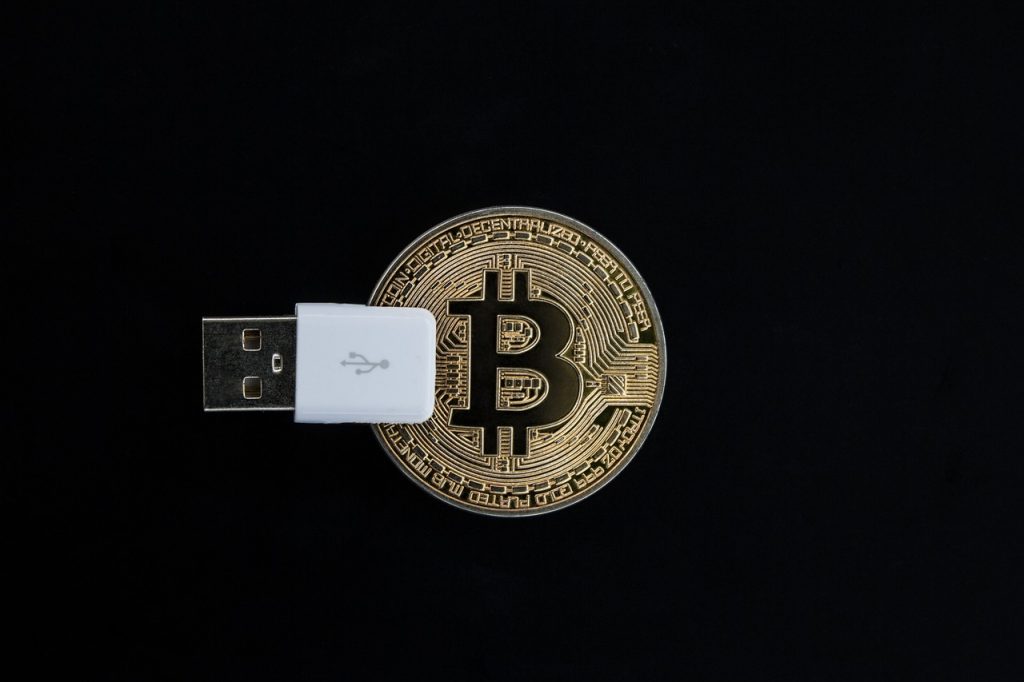Disclaimer: In this article, we will mention several crypto wallet brands. This is for informational purposes only. We do not have a partnership with any of the companies mentioned in this article, and readers are advised to do their own research to select a crypto wallet that best meets their personal preferences.
Crypto Wallets for Beginners
The world of finance is witnessing a revolution driven by digital currencies like Bitcoin, Ethereum, and countless others. These “cryptocurrencies” are unlike traditional money, operating on decentralized networks called blockchains and offering the potential for faster, cheaper, and more secure transactions.
If you want to participate in this new wave of finance, you need a secure place to store your digital assets such as a crypto wallet.
What is a Crypto Wallet?

A cryptocurrency wallet is a digital tool designed to store and manage your digital assets securely. Unlike traditional wallets, these digital counterparts don’t hold physical currency but rather the cryptographic keys needed to access and manage your cryptocurrencies.
Let me make it simpler for you: A crypto wallet is more like a digital vault for your cryptocurrency holdings. Unlike a traditional wallet holding physical cash, a crypto wallet doesn’t actually store your coins themselves. Instead, it securely stores private keys, unique digital codes that grant access to your cryptocurrency on the blockchain.
Why You Should Have a Crypto Wallet If You’re Dealing With Cryptocurrencies?
Just like cash, cryptocurrencies are valuable, and losing them can be devastating. Unlike traditional bank accounts with deposit insurance, however, cryptocurrencies are largely unregulated, and losing your private keys due to hacks, scams, or even forgetting them can mean losing your crypto forever. Therefore, I emphasize on choosing the right crypto wallet – as this will ensure the safety of your digital assets.
How Do Crypto Wallets Work?

Crypto wallets utilize cryptography. It’s a complex system of encryption and decryption, used to safeguard your private keys. This system is basically a combination of public and private keys:
- Public Key: This is like your bank account number, allowing others to send you cryptocurrency. You can share your public key freely without compromising your private key.
- Private Key: This is the master key to your crypto fortress, never to be shared. It allows you to sign transactions and authorize the movement of your funds.
The 2 Popular Types of Crypto Wallets

1. Hot Wallets:
Hot wallets represent a category of cryptocurrency wallets that are online and connected to the internet. These wallets are designed to provide quick and convenient access to your digital assets, allowing for quick transactions. With this, you can easily access your funds through smartphones, tablets, or computers.
Hot Wallet Examples:
Coinbase Wallet: A popular hot wallet that integrates with the Coinbase exchange, providing users with easy access to their cryptocurrencies.
MetaMask: Known for its compatibility with decentralized applications (DApps), MetaMask is a hot wallet often used in conjunction with web browsers like Chrome and Firefox.
Trust Wallet: A mobile wallet that supports a wide range of cryptocurrencies and is particularly popular for its integration with decentralized finance (DeFi) platforms.
Advantages of Hot Wallets:
Convenience: Hot wallets are user-friendly and ideal for those who require frequent access to their cryptocurrencies.
Accessibility: Easy access from various devices allows for flexible management of digital assets.
Instant Trades: Well-suited for active traders who need quick transaction execution.
DeFi Participation: Integration with DeFi platforms enables users to explore decentralized financial services seamlessly.
Disadvantages of Hot Wallets:
Security Vulnerabilities: Hot wallets are more susceptible to online threats, such as hacking and phishing attacks, due to their constant internet connection.
Risk of Hacks: Since hot wallets are connected to the internet, they face a higher risk of being compromised, leading to potential loss of funds.
Constant Internet Connection Dependence: Users relying on hot wallets must have a stable and secure internet connection for uninterrupted access to their funds.
2. Cold Wallets:
Cold wallets, also known as hardware wallets, take a different approach by keeping private keys offline. These physical devices enhance security by isolating sensitive information from potential online threats.
Cold Wallet Examples:
Trezor Model T: A popular hardware wallet featuring a touch screen for enhanced user interaction and security.
Ledger Nano X: Known for its portability and Bluetooth capability, the Ledger Nano X is a hardware wallet designed for ease of use.
Coldcard: A Bitcoin-focused hardware wallet with advanced security features, including a dedicated air-gapped signing system.
Advantages of Cold Wallets:
Offline Storage: Cold wallets offer enhanced security by keeping private keys offline, minimizing the risk of online attacks.
Superior Security: Hardware wallets provide a robust defense against various cybersecurity threats, ensuring the safety of digital assets.
Private Key Control: Users maintain full control over their private keys, reducing reliance on third-party entities for security.
Disadvantages Of Cold Wallets:
Less Convenient: Cold wallets are less convenient for daily transactions compared to hot wallets, as they require physical interaction.
Physical Device Management: Users need to manage and safeguard the physical hardware, which may be susceptible to loss or damage.
Higher Cost: Hardware wallets typically have an upfront cost, making them a less economical choice for those on a tight budget.
Comparison of Hot vs Cold Wallets:
| Feature | Hot Wallets | Cold Wallets |
| Convenience | High | Low |
| Security | Moderate | High |
| Accessibility | Anywhere with internet access | Requires physical device access |
| Vulnerability to Hacks | High | Low |
| Cost | Generally free | Upfront cost for hardware |
When to Use Each Wallet Type
Choosing the right type of cryptocurrency wallet is a decision that hinges on various factors, including the amount of digital assets you hold, your trading frequency, and your preferences regarding security and accessibility. Let me share a few suggestions for different scenarios:
Hot Wallets:
Ideal for Small Holdings and Frequent Trading: Hot wallets, exemplified by Coinbase Wallet, MetaMask, and Trust Wallet, are well-suited for individuals with smaller cryptocurrency holdings and those engaging in frequent trading activities.
The convenience and accessibility they offer make them perfect for day-to-day transactions and rapid responses to market changes.
Accessing DeFi Applications: If your interest lies in decentralized finance (DeFi) applications, hot wallets prove invaluable due to their integration capabilities. They seamlessly connect with various DeFi platforms, facilitating quick and efficient participation in decentralized lending, trading, and other financial activities.
Choosing Reputable Non-Custodial Wallets: When opting for a hot wallet, it’s essential to choose reputable non-custodial options. These wallets, while offering convenience, maintain a strong emphasis on security, ensuring that users retain control over their private keys and, subsequently, their digital assets.
Cold Wallets:
Recommended for Long-Term Holding: Cold wallets, represented by hardware devices like Trezor Model T, Ledger Nano X, and Coldcard, shine when it comes to long-term holding of significant amounts of cryptocurrency.
Their offline storage capabilities provide an extra layer of protection against online threats and hacking attempts. If it’s not connected to the internet, it can’t be hacked.
Large Amounts of Cryptocurrency: If you’re holding a substantial amount of cryptocurrency as part of a long-term investment strategy, a cold wallet is the go-to choice. The enhanced security measures and isolation from the internet significantly reduce the risk of unauthorized access and potential breaches.
Maximum Security Priority: Individuals who prioritize maximum security over day-to-day transactional convenience should opt for cold wallets.
While less convenient for regular transactions, the heightened security features, including private key control and offline storage, make them an ideal choice for those who consider security important.
Factors to Consider for Beginners When Choosing a Crypto Wallet:
Ease of Use: Consider the ease of use when selecting a wallet type. Hot wallets, with their online accessibility, offer a more user-friendly experience, making them suitable for beginners.
On the other hand, cold wallets, while providing heightened security, may have a steeper learning curve and require more careful management.
Supported Currencies: Evaluate the supported currencies of each wallet type. Some wallets focus on specific cryptocurrencies, while others offer support for a broader range. Ensure that your chosen wallet aligns with the digital assets you intend to store.
Long-Term Durability: Consider the long-term durability of the wallet, especially for hardware options. Investing in a durable and well-maintained device ensures the longevity of your storage solution and protects against potential hardware failures.
Not All Crypto Wallets Work Everywhere: Understanding Compatibility
Like I mentioned earlier, cryptocurrency wallets are like digital banks for your digital money, allowing you to send, receive, and store cryptocurrencies. But here’s the catch: not all wallets can handle every type of cryptocurrency. Here’s why:
The Reasons for Incompatibility:
Reason#1 – Blockchain Specificity: Each blockchain operates with its own set of rules and consensus mechanisms. Bitcoin, for example, uses the UTXO model, while Ethereum employs account-based transactions.
These fundamental differences require specialized software to interact with the respective blockchain and understand its data structures.
Reason#2 – Technical Divergence: Beyond core principles, blockchains differ in technical specifications like address formats, encryption methods, and transaction validation processes. A Bitcoin wallet’s private key wouldn’t function on an Ethereum address due to incompatible address formats.
Reason#3 – Security Considerations: Some wallets prioritize security by focusing on a single blockchain, reducing vulnerabilities and simplifying code. Others prioritize multi-currency support, potentially introducing more attack vectors.
What is the Impact on Users?
The limited interoperability of crypto wallets presents several challenges for users:
Multiple Wallets: Holding diverse crypto assets often necessitates juggling multiple wallets, each compatible with its respective blockchain. This can be cumbersome and confusing, especially for beginners.
Limited Choice: Users may be restricted in their wallet options for specific cryptocurrencies, potentially impacting security features or user interfaces.
Transaction Complexity: Sending or receiving crypto across disparate blockchains can involve complex cross-chain swaps or bridge protocols, adding layers of complexity and potential fees.
Solutions and Emerging Trends:
Despite these challenges, the crypto community actively seeks solutions to improve interoperability:
Multi-Currency Wallets: Some wallets are expanding their capabilities to support multiple blockchains and their native assets. While security concerns remain, such wallets offer convenience for diversifying crypto holdings.
Interoperability Protocols: Protocols like Cosmos and Polkadot are developing blockchain bridges that facilitate communication and value transfer between different networks. These solutions hold promise for a more interconnected crypto ecosystem.
Standardized Address Formats: Initiatives like the Universal Address Format (UAF) aim to create a universal address format compatible across various blockchains. This could simplify transactions and user experience.
Popular Hot Wallets You Can Consider
1. MetaMask: Unlocking the World of Ethereum
MetaMask stands out as a widely used digital wallet designed to manage, send, and receive Ethereum and ERC-20 tokens. Created in 2016 by Aaron Davis and Dan Finlay, MetaMask acts as a bridge, connecting regular browsers like Google Chrome or Firefox to the Ethereum blockchain through a browser extension.
Key Features:
- User-Friendly Access: MetaMask allows users to engage with Ethereum without the need to download the complete blockchain, making it user-friendly for crypto enthusiasts.
- DApp Integration: The wallet facilitates interaction with Ethereum DApps without hosting a complete Ethereum node.
- Browser Extension: Using JavaScript, MetaMask embeds a web3 object into web pages, adding a feature that connects users to the Ethereum platform without affecting the website.
Usage Tips:
- Gas Price Adjustment: Users may need to adjust gas prices when transmitting tokens, avoiding potential high fees.
- Authorization: Each action requires user authorization, providing an extra layer of security, especially when engaging with smart contracts.
Evolution and Adoption:
MetaMask has played a pivotal role in introducing users to the decentralized application (DApp) industry. With a Chrome extension reaching a million users in 2020, the platform continues to witness exponential growth.
The introduction of MetaMask Mobile in 2020 further extended its reach to smartphone users, both on Android and iPhone platforms.
2. Electrum
Electrum, launched in 2011, is a cold wallet that focuses on securing Bitcoin. While its user interface may be minimalist, it excels in providing essential features for Bitcoin storage.
Key Features:
- Private Key Encryption: Electrum ensures the encryption of private keys, enhancing security.
- Offline Storage: Private keys are stored offline, reducing vulnerability to online threats.
- SPV Verification: Transactions are verified using the Simple Payment Verification (SPV) method, allowing faster transaction verification without downloading the entire blockchain.
Installation and User Base:
Electrum runs on major desktop operating systems and is available on Android. However, its setup process can be more intricate compared to other wallets.
Geared towards advanced users, Electrum’s features come with a degree of complexity, making it more suitable for seasoned cryptocurrency users.
3. Coinbase Wallet
Coinbase Wallet provides users with full control over their Bitcoin holdings. It distinguishes itself as an independent entity, separate from the Coinbase crypto exchange.
Key Features:
- Private Key Control: Users retain control of their private keys on their mobile devices, enhancing security.
- Multi-Cryptocurrency Support: Initially designed for Ethereum and ERC20 tokens, Coinbase Wallet now supports various cryptocurrencies, including Bitcoin.
- Diverse Functionality: Beyond transactions, users can engage in airdrops, ICOs, access DApps, make online purchases, and explore the NFT market.
Transaction Costs and Accessibility:
While the wallet itself is free to download and set up, certain transactions may incur fees. Coinbase Wallet’s user-friendly interface and reliability make it suitable for both new and experienced traders.
Security Considerations:
As a hot wallet, Coinbase Wallet prioritizes user accessibility but is susceptible to cyber threats and hacking. While it offers an array of functionalities, users should remain vigilant about potential security risks associated with hot wallets.
Popular Cold Wallets You Can Consider
1. Ledger Nano X
Ledger Nano X, an upgrade from its predecessor Nano S, is a hardware wallet designed for maximum security and user convenience. Launched by Ledger, a reputable player in the crypto security space, Nano X stands out for its portability and advanced features.
Key Features:
- Bluetooth Connectivity: Nano X boasts Bluetooth capability, enabling wireless connection with mobile devices for enhanced usability.
- Secure Element Chip: The device incorporates a secure element chip, safeguarding private keys from potential threats.
- Wide Asset Support: Ledger Nano X supports a wide array of cryptocurrencies, providing users with diverse options for securing their digital assets.
User Experience:
The Ledger Live companion app enhances the user experience by allowing easy management of assets, checking balances, and installing firmware updates. Its compact design makes it an ideal choice for those seeking a balance between security and portability.
2. Trezor Model T
Trezor Model T, developed by SatoshiLabs, is a premium cold wallet revered for setting industry standards. With a focus on security and usability, it offers a comprehensive solution for storing various cryptocurrencies.
Key Features:
- Touchscreen Display: The Model T incorporates a touchscreen display, providing an intuitive interface for users to interact with the device.
- Open-Source Software: Trezor is known for its commitment to open-source principles, allowing users to scrutinize and contribute to the wallet’s code for transparency.
- Support for Multiple Cryptocurrencies: Trezor Model T supports a wide range of cryptocurrencies, making it versatile for diverse crypto portfolios.
Security Measures:
Trezor wallets employ PIN protection and recovery seed phrases, ensuring that even if the device is lost or stolen, users can recover their funds securely. The device’s firmware is regularly updated to address potential vulnerabilities.
3. CoolWallet Pro
CoolWallet Pro is a credit-card-sized cold wallet designed for users who prioritize both security and mobility. Developed by CoolBitX, this wallet aims to combine the best of both worlds, allowing users to secure their assets on the go.
Key Features:
- Credit Card Form Factor: CoolWallet Pro’s slim and card-like design makes it convenient for users to carry their cold wallet with them.
- Bluetooth Connectivity: Similar to Ledger Nano X, CoolWallet Pro utilizes Bluetooth connectivity for seamless pairing with mobile devices.
- Multi-Currency Support: The wallet supports various cryptocurrencies, providing users with flexibility in managing their digital assets.
Security Considerations:
CoolWallet Pro emphasizes the importance of secure key generation and storage. Its dynamic pairing and two-factor authentication provide additional layers of security. Users can easily monitor and manage their assets through the CoolBitX app.
Best Security Practices For Crypto Wallets
1. Importance of Secure Passwords:
No crypto wallets for beginners guide would be complete without a section on passwords. Creating a strong and unique password is the first line of defense against unauthorized access. Avoid using easily guessable passwords such as common words or phrases.
Instead, opt for a combination of uppercase and lowercase letters, numbers, and special characters. Ensure that your password is lengthy and distinct, reducing the likelihood of brute-force attacks. Regularly update your passwords and refrain from using the same password across multiple platforms.
2. Two-Factor Authentication (2FA):
Implementing Two-Factor Authentication adds an extra layer of security to your crypto wallet. 2FA requires users to provide two forms of identification before gaining access, typically combining something you know (your password) with something you have (a mobile device or authentication app, like google authenticator).
This additional step significantly enhances the overall security of your wallet, making it more resilient against unauthorized access even if your password is compromised.
3. Regular Updates and Maintenance:
Keep your crypto wallet software and any associated applications up to date. Developers continually release updates to address security vulnerabilities and enhance overall performance.
Regularly check for updates and apply them promptly to ensure that your wallet benefits from the latest security patches. Outdated software may expose your wallet to potential exploits, putting your digital assets at risk.
4. Avoiding Phishing Scams:
Exercise caution when clicking on links or providing information online. Phishing scams are prevalent in the crypto space, and attackers often use deceptive methods to trick users into revealing sensitive information. Be wary of unsolicited emails, messages, or websites that ask for your wallet credentials or personal details.
Always double-check the legitimacy of the source and ensure you are using official channels to access your wallet. If in doubt, contact the platform or service provider directly through their official channels to verify the authenticity of any communication.
5. Secure Backup and Recovery Processes:
Create secure backups of your wallet’s recovery phrases or private keys and store them in a safe location. This ensures that you can regain access to your funds in the event of device loss, theft, or failure.
Be cautious about where and how you store these backups, as physical and digital security measures are equally important in safeguarding your crypto assets.
Crypto wallets for beginners – Final Words
Choosing the right crypto wallet is a critical step in securing your digital assets. In a nutshell, hot wallets provide convenience for daily transactions, while cold wallets offer maximum security for long-term holding.
So, consider your specific needs, the amount of cryptocurrency you hold, and your willingness to prioritize security over convenience – and then choose the right crypto wallet for you.



